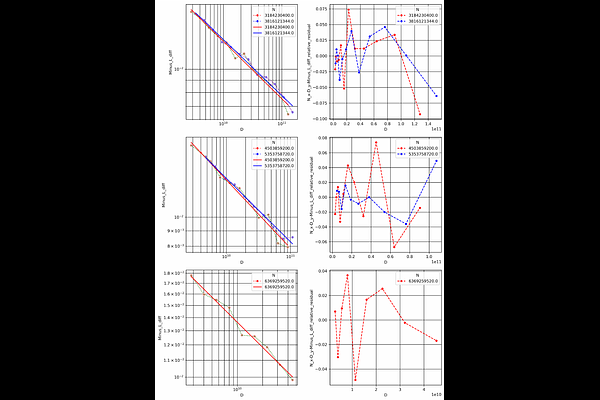Farseer: A Refined Scaling Law in Large Language Models

Farseer: A Refined Scaling Law in Large Language Models
Houyi Li, Wenzhen Zheng, Qiufeng Wang, Zhenyu Ding, Haoying Wang, Zili Wang, Shijie Xuyang, Ning Ding, Shuigeng Zhou, Xiangyu Zhang, Daxin Jiang
AbstractTraining Large Language Models (LLMs) is prohibitively expensive, creating a critical scaling gap where insights from small-scale experiments often fail to transfer to resource-intensive production systems, thereby hindering efficient innovation. To bridge this, we introduce Farseer, a novel and refined scaling law offering enhanced predictive accuracy across scales. By systematically constructing a model loss surface $L(N,D)$, Farseer achieves a significantly better fit to empirical data than prior laws (e.g., Chinchilla's law). Our methodology yields accurate, robust, and highly generalizable predictions, demonstrating excellent extrapolation capabilities, improving upon Chinchilla's law by reducing extrapolation error by 433\%. This allows for the reliable evaluation of competing training strategies across all $(N,D)$ settings, enabling conclusions from small-scale ablation studies to be confidently extrapolated to predict large-scale performance. Furthermore, Farseer provides new insights into optimal compute allocation, better reflecting the nuanced demands of modern LLM training. To validate our approach, we trained an extensive suite of approximately 1,000 LLMs across diverse scales and configurations, consuming roughly 3 million NVIDIA H100 GPU hours. We are comprehensively open-sourcing all models, data, results, and logs at https://github.com/Farseer-Scaling-Law/Farseer to foster further research.